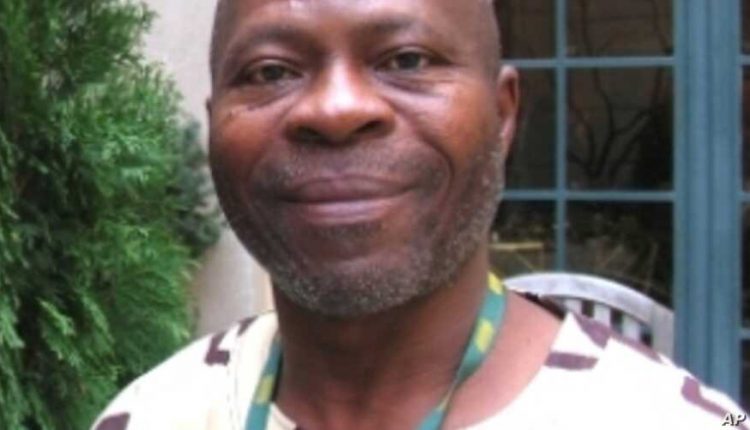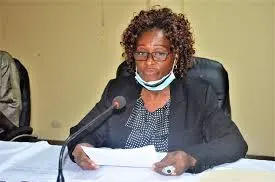Liberia is moving dangerously downward into an abyss
By James M. Fromayan
The Perspective
Atlanta, Georgia
May 8, 2022
PRESS RELEASE
03 May 2022
At an alarming rate, Liberia is moving dangerously downward into an abyss. It is a very troubling and discouraging situation considering the recent past history of our Country. The fratricidal civil conflict that commenced on 24 December 1989 claimed the lives of more than two hundred thousand Liberians. It was a conflict deeply rooted in the rigged Presidential and Legislative Elections of October 1985. Those Elections were conducted by the then Special Elections Commission (SECOM) under the Chairmanship of the late Emmett Harmon, a veteran of traditional True Whig Party Politics, who was recruited by Samuel Doe to do for his National Democratic Party of Liberia (NDPL) what Harmon and his likes did over many years for the Grand Old TWP.
Indeed, those Elections were conducted in the most unpatriotic and selfish manner with no regard for the general good of Liberia. As a consequence, the 12 November 1985 attempted coup led by the late General Thomas Q. Quiwonkpa occurred. The Quiwonkpa’s rebellion resulted in the death of more than four hundred Liberians and was the prelude to Charles Taylor’s rebellion of 24 December 1989 from which Liberia is yet to fully recover. With the help of the International community led by the Economic Community of West African States (ECOWAS), the prevailing fragile peace in Liberia was established following the death of numerous West African Peace Keepers who paid the ultimate price in the cause of saving Liberians from themselves. Moreover, more than six billion United States Dollars was reportedly expended by the International Community to extinguish a fire that Liberians, to a large degree, ignited themselves.It is very sad that history is about to repeat itself. Again, the National Elections Commission (NEC), this time around, under the leadership of Madam Davidetta Browne-Lansanah, has been conducting itself in a questionable and non-credible manner that glaringly undermines its independence. The unilateral decision by the NEC to conduct a mobile voter update exercise prior to the conduct of the 2020 Special Senatorial Election, a situation that could culminate in fraudulent Election results if the ECOWAS DATA MANAGEMENT TEAM had not intervened to salvage the Final Registration Roll (FRR) is a case in point.
Arguably, the most conflicted & corrupt Chair of the NEC everAdditionally, the Commission’s acquiescence in the non-certification of Former Defense Minister J. Brownie Samukai who decisively won the 2020 Senatorial Election in Lofa County is another case worthy of emphasis. Having filed an application at the National Elections Commission as a Senatorial Aspirant for Lofa County consistent with Section 4.5(2) of the 29 September 1986 New Elections Law, the NEC scrutinized and qualified Hon. Samukai as a candidate in accordance with Section 2.9(n) of the 29 September 1986 New Elections Law. Moreover, the Commission proceeded to conduct the Special Senatorial Election across Liberia, an election, as announced by the NEC, that Hon. Samukai undisputedly won in Lofa County. For the NEC to abandon Hon. Samukai, and subsequently failed to certify his election because of a legal challenge that should have been prior to and not after the election, seriously eroded the credibility, transparency, and independence of the National Elections Commission. That colossal failure by the Commission made a large segment of Liberia’s population perceive the National Elections Commission (NEC) as an extension of the ruling Congress for Democratic Change (CDC).
Rather than embarking on serious efforts to rebuild its credibility, the National Elections Commission has by its recent actions created more doubts relating to its resolve, impartiality, and competence to conduct in a free, fair, and credible manner, the very crucial Presidential and Legislative Elections of 2023. The recent ruling made by the NEC in the case brought by the Musa Bility’s faction of the Liberty Party (LP) and the Alternative National Congress (ANC) against the All Liberian Party (ALP) and the Unity Party (UP) relating to withdrawal from the CPP generated more questions than answers. It was a decision enveloped by ambiguity devoid of clarity.
The NEC Junior Hearing officer, Atty. Fomba Swaray ruled that the NEC lacks jurisdiction to provide an answer to the question as to whether one can associate fully with others or refuse to associate with Political Parties, trade unions, and other organizations in accordance with Article 17, under Fundamental Rights, of the 1986 Constitution of Liberia. He further indicated that the Supreme Court of Liberia is the sole authority to answer said question.
But surprisingly, Atty. Swaray, having conceded NEC’s lack of Jurisdiction over a Constitutional matter, complicated and created ambiguity by concluding that no further action would be taken relating to UP participation in the Lofa County By-Election pending a decision by the Honorable Supreme Court. By that action, Atty. Swaray assumed jurisdiction of a case in which he earlier indicated that his entity lacks jurisdiction. In accordance with international best practice, the Elections Management Body (EMB) would refer the plaintiff to the Authority that has jurisdiction in such matter and proceeds with the execution of its mandate until prohibited by the Authority that has said jurisdiction. The Commission’s failure to maintain consistency with its earlier admission of lack of jurisdiction has made a significant percentage of Liberians to perceive the NEC as a party to the conflict.
The National Elections Commission (NEC) is not an archive where documents belonging to Political Parties and Independent Candidates are to be filed and kept. Rather, the Commission is the Agency responsible to conduct all Public Elections throughout the Republic of Liberia in accordance with Section 2.9 of the 1986 New Elections Law. Also, the Commission has the authority to regulate the activities of Political Parties and independent candidates. As such, documentation submitted to the Commission by Political Parties and Independent Candidates must be thoroughly scrutinized by the Commission to ensure that all provisions are fully in conformity or consistent with the Constitution of Liberia.
If the Commission had meticulously done its job, the current confusion relating to the Framework Document of the Collaborating Political Parties (CPP) would have been avoided. In effect, there could be no contention relating to the alteration of any provision of the said CPP Framework document be it original or photocopy that was submitted to the National Elections Commission (NEC). Had the NEC not neglected its duties, Section 8.5 of the CPP Framework Document would have been ordered corrected by the NEC prior to the accreditation of the CPP as a coalition or collaboration. Said directive by the NEC could have been fully justified because the said section 8.5 of the CPP Framework Document is inconsistent with Article 17 of the 1986 Constitution of Liberia. The failure of the NEC to fully discharge its duties is a cardinal part of the crisis that has balkanized the Collaborating Political Parties (CPP).
Section 2.2 of the New Elections law grants the President of Liberia the power to nominate, and following Senate confirmation, appoint Commissioners of the National Elections Commission (NEC).In granting said power to the President, the framers of Liberia’s Electoral Laws had envisaged, that the President, in pursuit of the collective national interest, would appoint individuals of good moral character, qualification, and requisite experience to administer the affairs of the National Elections Commission, a very critical national institution. To emphasize their intent, the framers of Liberia’s Electoral Laws, in Section 2.3, indicated that the “Commissioners shall be of good moral character.”
Regrettably, there is no evidence to suggest that President Weah, in the exercise of the powers granted him by the aforementioned Section 2.2 of the 1986 New Elections Law, devoted much attention to the nomination and appointment of individuals, adequately competent, to protect the collective national interest, as opposed to the protection of the narrow partisan interest. The result is the prevailing credibility and competency crisis that confronts the Electoral Management Body (EMB) of Liberia. If this crisis is not reversed until the conduct of the crucial 2023 Presidential and Legislative Elections, the potential for the retrogression of Liberia into a State of anarchy would be very huge. According to Khabele Matlosa, et al, in the masterpiece, (When Elephants Fight, pages 2-3), “Peaceful and credible elections can only be a possibility if the Electoral Commission manages the elections in a manner that is consistent with international best practice which considers compliance with the legal framework, including electoral regulations, procedures, and manuals, as a prerequisite for the achievement of professionalism by the Elections Commission.”Since the possibility of peaceful and credible elections depend on the manner in which the Electoral management Body manages the election, it is imperative that the current inadequacy associated with the operation of the National Elections Commission be urgently addressed to ensure a safe electoral landing in 2023. The prevailing credibility and integrity crisis confronting the National Elections Commission (NEC) can be addressed as follow:
1. That a five (5) member counter-part Commissioners comprising representatives of the United Nations, the African Union (AU), and the Economic Community of West African States (ECOWAS) be urgently organized by the International Community to validate all actions of the current National Elections Commission (NEC) to ensure that the planning and conduct of the 2023 Presidential and Legislative Elections are executed in accordance with international best practice. This would ensure the consolidation of our democratic experiment and the protection of the collective interest;
2. That International IT Experts be assigned to operate the Data Center in conjunction with the NEC Data Team to ensure the protection of the collective interest. Moreover, the Data Center should be accessible to all Political Parties and Independent Candidates to erase the existence of doubts regarding the transparency of the process;3. To prevent a repeat of the fraud that was associated with the application of the Optical Marked Recognition (OMR) system during the conduct of the 2017 Presidential and Legislative Elections, there is a critical and compelling need for the application of the Biometric Enrollment System (BES) during the conduct of the 2023 Presidential and Legislative Elections;
4. Section 6.1 of the 1986 Elections Law mandates that complaints arising from the conduct of elections conducted by the Elections Commission, be filed with the Commission. This mandate places the Commission in the position of judge and jury. Additionally, it distracts the Commission from its key functions of conducting and declaring the result of elections in a timely manner. To avoid a repeat of this situation in 2023, there is an urgent need to establish a temporary election court to primarily focus on the adjudication of election complaints to enable the Elections Commission to focus on the execution of its key mandates and thus enhance its credibility.
Signed: ------------------------------------------------------
James M. Fromayan
Director- General
What is your take? Post your comments below:

